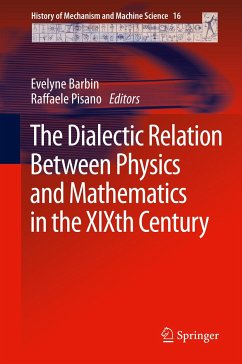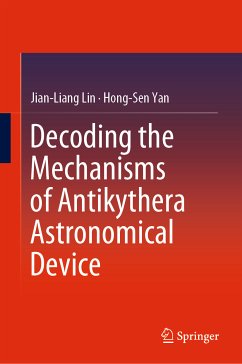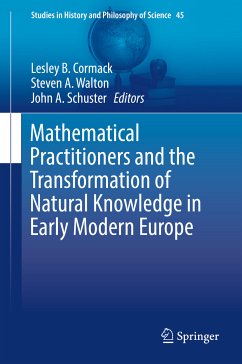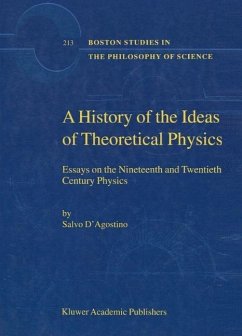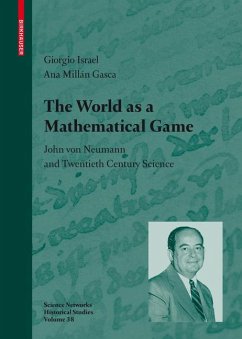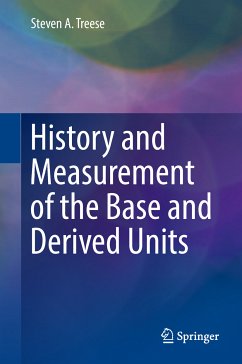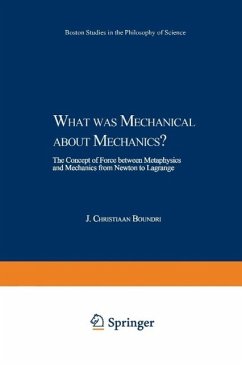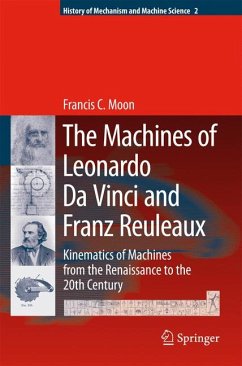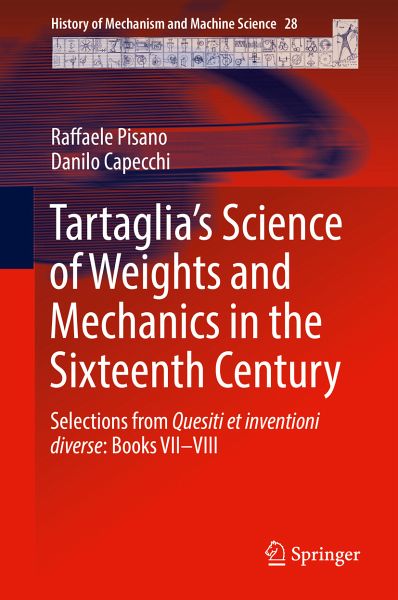
Tartaglia's Science of Weights and Mechanics in the Sixteenth Century (eBook, PDF)
Selections from Quesiti et inventioni diverse: Books VII-VIII
Versandkostenfrei!
Sofort per Download lieferbar
72,95 €
inkl. MwSt.
Weitere Ausgaben:

PAYBACK Punkte
36 °P sammeln!
This book presents a historical and scientific analysis as historical epistemology of the science of weights and mechanics in the sixteenth century, particularly as developed by Tartaglia in his Quesiti et inventioni diverse, Book VII and Book VIII (1546; 1554).In the early 16th century mechanics was concerned mainly with what is now called statics and was referred to as the Scientia de ponderibus, generally pursued by two very different approaches. The first was usually referred to as Aristotelian, where the equilibrium of bodies was set as a balance of opposite tendencies to motion. The seco...
This book presents a historical and scientific analysis as historical epistemology of the science of weights and mechanics in the sixteenth century, particularly as developed by Tartaglia in his Quesiti et inventioni diverse, Book VII and Book VIII (1546; 1554).
In the early 16th century mechanics was concerned mainly with what is now called statics and was referred to as the Scientia de ponderibus, generally pursued by two very different approaches. The first was usually referred to as Aristotelian, where the equilibrium of bodies was set as a balance of opposite tendencies to motion. The second, usually referred to as Archimedean, identified statics with centrobarica, the theory of centres of gravity based on symmetry considerations. In between the two traditions the Italian scholar Niccolò Fontana, better known as Tartaglia (1500?-1557), wrote the treatise Quesiti et inventioni diverse (1546).
This volume consists of three main parts. In the first, a historical excursus regarding Tartaglia's lifetime, his scientific production and the Scientia de ponderibus in the Arabic-Islamic culture, and from the Middle Ages to the Renaissance, is presented. Secondly, all the propositions of Books VII and VIII, by relating them with the Problemata mechanica by the Aristotelian school and Iordani opvsculvm de ponderositate by Jordanus de Nemore are examined within the history and historical epistemology of science. The last part is relative to the original texts and critical transcriptions into Italian and Latin and an English translation.
This work gathers and re-evaluates the current
thinking on this subject. It brings together contributions from two distinguished experts in the history and historical epistemology of science, within the fields of physics, mathematics and engineering. It also gives much-needed insight into the subject from historical and scientific points of view. The volume composition makes for absorbing reading for historians, epistemologists, philosophers and scientists.
In the early 16th century mechanics was concerned mainly with what is now called statics and was referred to as the Scientia de ponderibus, generally pursued by two very different approaches. The first was usually referred to as Aristotelian, where the equilibrium of bodies was set as a balance of opposite tendencies to motion. The second, usually referred to as Archimedean, identified statics with centrobarica, the theory of centres of gravity based on symmetry considerations. In between the two traditions the Italian scholar Niccolò Fontana, better known as Tartaglia (1500?-1557), wrote the treatise Quesiti et inventioni diverse (1546).
This volume consists of three main parts. In the first, a historical excursus regarding Tartaglia's lifetime, his scientific production and the Scientia de ponderibus in the Arabic-Islamic culture, and from the Middle Ages to the Renaissance, is presented. Secondly, all the propositions of Books VII and VIII, by relating them with the Problemata mechanica by the Aristotelian school and Iordani opvsculvm de ponderositate by Jordanus de Nemore are examined within the history and historical epistemology of science. The last part is relative to the original texts and critical transcriptions into Italian and Latin and an English translation.
This work gathers and re-evaluates the current
thinking on this subject. It brings together contributions from two distinguished experts in the history and historical epistemology of science, within the fields of physics, mathematics and engineering. It also gives much-needed insight into the subject from historical and scientific points of view. The volume composition makes for absorbing reading for historians, epistemologists, philosophers and scientists.
Dieser Download kann aus rechtlichen Gründen nur mit Rechnungsadresse in A, B, BG, CY, CZ, D, DK, EW, E, FIN, F, GR, HR, H, IRL, I, LT, L, LR, M, NL, PL, P, R, S, SLO, SK ausgeliefert werden.




